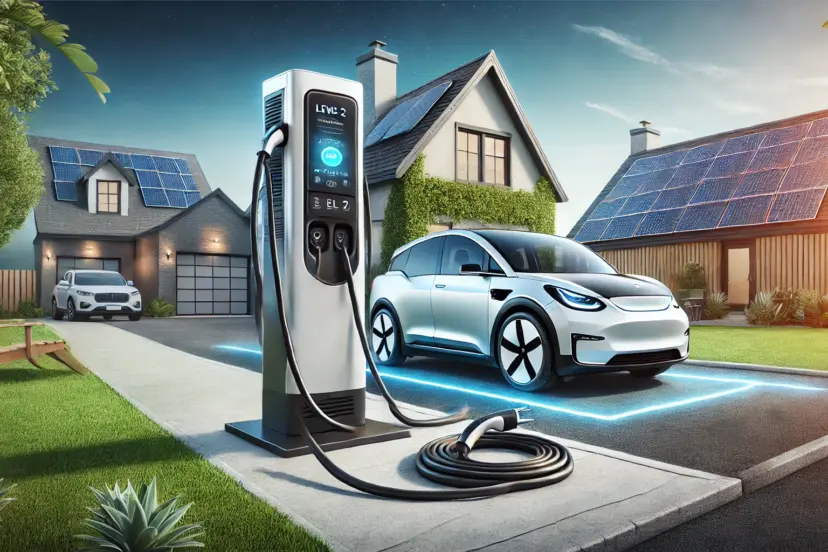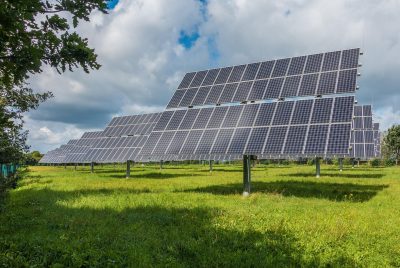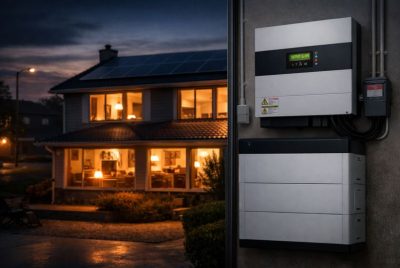Best Home EV Charger: Your Ultimate Guide to Charging Smarter
If you’ve got an electric car (congrats, by the way, for making a cool and eco-friendly choice), you’ve probably thought about getting a home EV charger. Trust me, it’s a total game-changer. Imagine this: every morning, your car is fully charged, sitting in your driveway, and ready to roll. No detours to public chargers, no waiting in line—just plug, sleep, and go. Let me take you through everything you need to know about picking the best home EV charger for your needs.
Why You Need a Home EV Charger
Think about it—would you rather stop at a gas station every couple of days, or have your car “fuel up” while you binge-watch your favorite show? Having a home EV charger is like having a personal gas station (minus the smell and overpriced snacks). It saves time, adds convenience, and, if you play your cards right with off-peak electricity rates, it can save you some cash too.
Types of Home EV Chargers
Alright, let’s get to the basics. There are two main types of home EV chargers: Level 1 and Level 2. Level 1 chargers are super simple. You just plug them into a standard outlet. The downside? They’re slow. Like “watching-paint-dry” slow. Level 2 chargers, on the other hand, require a 240-volt outlet (you might need an electrician for that), but they’re so much faster. Think of it this way: Level 1 is the turtle, and Level 2 is the hare—fast and efficient.
What to Look For in a Home EV Charger
Choosing the right charger can feel like picking the perfect phone—you want all the bells and whistles, but it has to actually work for you. First, think about charging speed. If you hate waiting (who doesn’t?), a higher kilowatt rating means your car charges faster. Next, make sure the charger is compatible with your car. Nobody wants to deal with mismatched plugs. And if you love tech, look for smart features like Wi-Fi connectivity or scheduling options so you can charge when electricity rates are low. Oh, and don’t forget durability. If you’re installing this baby outside, it’s gotta handle the elements.
Top Brands People Love
If you’ve done a little Googling already, you’ve probably seen some big names pop up. Tesla Wall Connector is an obvious win if you drive a Tesla (duh). For everyone else, brands like JuiceBox, ChargePoint, and Wallbox Pulsar Plus are super popular. They’re known for being reliable, sleek, and packed with useful features. Bonus: they don’t look like an eyesore on your garage wall.
Why Owning a Home EV Charger Rocks
I’ll keep it real—once you have a home EV charger, you’ll wonder how you lived without it. It’s so nice knowing you’ll wake up to a fully charged car, every single day. It also saves you money if you charge during off-peak hours (electricity is cheaper when everyone else is asleep). Plus, if you ever decide to sell your house, having an EV charger installed could boost your property value. It’s like a little investment in your home and your sanity.
How Fast Does It Charge?
Speed depends on the charger and your car’s battery, but here’s a rough idea. A Level 1 charger might take 20-40 hours for a full charge. Yep, you read that right—hours. But a Level 2 charger? It’s a whole different story, cutting that time down to around 4-8 hours. It’s like filling a kiddie pool with a garden hose versus using a firehose. Faster is better, especially if you’re constantly on the go.
Installing It: DIY or Call a Pro?
Okay, so here’s the deal: installing a charger isn’t rocket science, but it’s not always a DIY project either. If you’re just plugging into an existing outlet, you’re golden. But if you need a 240-volt setup or your electrical panel upgraded, call an electrician. Trust me, messing with electricity isn’t worth the risk (or the potential singed eyebrows).
Where Should You Install It?
This one’s easy. If you’ve got a garage, indoor installation is usually the best bet. It keeps your charger safe from weather and makes things more convenient. No garage? No problem. Many chargers are weatherproof and built for outdoor use. Just make sure yours can handle rain, snow, and whatever else Mother Nature throws at it.
Smart Features Are a Game-Changer
Ever wish you could control your gadgets from your phone? (Same.) Many chargers come with apps that let you monitor charging, schedule sessions, and even get notifications when your car’s battery is full. It’s like having a personal assistant for your EV—minus the awkward small talk.
Are All Chargers Compatible With All EVs?
Here’s where things can get tricky. Most chargers use a standard connector called J1772, which works with pretty much every EV except Teslas. Don’t worry, though—Tesla includes an adapter with their cars, so you’re covered. Moral of the story? Double-check your car’s requirements before buying a charger to avoid any headaches later.
How Much Does It Cost?
Let’s talk dollars and cents. A good home EV charger will cost you anywhere from $500 to $1,500, depending on the features. Installation? That can add another $500 to $2,000, especially if you need new wiring. It’s definitely an investment, but when you factor in the convenience and savings over time, it’s totally worth it. (Think of all the Starbucks runs you’ll avoid while waiting at public chargers!)
How to Pick the Right Charger
Feeling a little overwhelmed by options? You’re not alone. Start by thinking about how much you drive. If you’re commuting long distances daily, go for a faster charger. Budget is another biggie—don’t overspend on features you don’t need. And if you’re planning to upgrade your car in the future, pick a charger that’s compatible with a wide range of EVs. Future-you will thank you.
Common Mistakes to Avoid
Let me save you some trouble here. First, don’t assume all chargers work with all cars (check before you buy!). Second, don’t forget to budget for installation—it’s easy to underestimate those costs. Finally, don’t overdo it on power. If your car can’t handle a super high-speed charger, it’s like buying a sports car for city traffic. Overkill.
Why Home Charging is Eco-Friendly
Charging at home isn’t just convenient; it’s also great for the planet. Pair your EV charger with solar panels or a green energy plan, and you’re basically driving on sunshine. It’s a small step with a big impact, especially if you’re trying to shrink your carbon footprint. (Mother Earth will give you a virtual high five.)
How to Keep Your Charger in Tip-Top Shape
Taking care of your charger is pretty low-maintenance. Give it a quick wipe-down now and then to keep dust and grime away. Check the cord for any damage, especially if it’s installed outside. And most importantly, follow the manufacturer’s guidelines—don’t try to reinvent the wheel.
What About Portable Chargers?
Portable chargers are like the Swiss Army knife of EV charging. They’re great for road trips or as a backup, but they’re not meant to replace a home setup. They’re slower and not as convenient for daily use, but hey, they’ll get you out of a jam when you’re on the road.
What’s Next in EV Charging?
The future of EV charging is looking pretty exciting. Faster charging speeds are on the horizon, which could mean powering up in just minutes. Bidirectional charging is also making waves—it lets your car’s battery power your home during outages. And with smarter chargers powered by AI, the whole process is only going to get more seamless.
Are Home EV Chargers Safe?
Short answer: absolutely. As long as it’s installed correctly, a home EV charger is as safe as plugging in your toaster. Most chargers come with built-in safety features like overcurrent protection and auto shutoff. Just follow the instructions, and you’re good to go.
Which Charger Should You Buy?
If you drive a Tesla, the Tesla Wall Connector is a no-brainer. For everyone else, JuiceBox and ChargePoint are solid picks with smart features and sleek designs. If you need something rugged and outdoor-friendly, the Grizzl-E Classic is a tank that can handle anything. Whatever you choose, make sure it fits your car, your budget, and your lifestyle.
Scientific Insights on Home EV Charging
The study titled “Research on Electric Vehicle Charging System: Key Technologies” explores cutting-edge advancements in EV charging, focusing on power electronics and renewable energy integration. It highlights challenges like high EV costs, battery degradation, and limited range while emphasizing the need for efficient charging solutions to foster sustainable transportation. Meanwhile, the Harvard study, “Charging the Future: Challenges and Opportunities for Electric Vehicle Charging Infrastructure”, examines the strain home EV charging places on local power grids, especially during peak hours. It suggests utilities implement strategic measures to shift charging to off-peak times, ensuring grid stability while accommodating growing EV adoption.
Top Home EV Chargers Available on Amazon
Equipping your home with a reliable electric vehicle (EV) charger enhances convenience and ensures your vehicle is always ready to go. Here are some top-rated home EV chargers available on Amazon:
- Emporia Smart Home EV Charger
This Level 2 charger delivers up to 48 amps of power, significantly reducing charging time compared to standard chargers. It features Wi-Fi connectivity, allowing users to monitor and control charging sessions via a dedicated app. The charger is compatible with all EV models and includes a 24-foot cable for flexible installation. - BESENERGY EV Charger Level 2
Offering up to 32 amps of power, the BESENERGY charger is designed for efficiency and reliability. It comes with a 25-foot cable, providing ample reach for various parking configurations. The charger is compatible with most EVs and features a clear LED display to monitor charging status. - Lectron Level 2 Portable EV Charger
Ideal for both home use and on-the-go charging, the Lectron charger provides up to 32 amps of power. Its portable design makes it easy to transport, and it includes a 21-foot cable for flexibility. The charger is compatible with most EVs and features a NEMA 14-50 plug for easy installation. - MUSTART Level 2 Portable EV Charger
Delivering up to 40 amps of power, the MUSTART charger is known for its durability and fast charging capabilities. It includes a 25-foot cable and a NEMA 14-50 plug, making it suitable for various installation setups. The charger is compatible with most EVs and features a compact, portable design.
Wrapping It Up
Getting a home EV charger is one of the best decisions you can make as an EV owner. It’s convenient, cost-effective, and makes your life so much easier. Whether you’re all about speed, tech features, or just keeping things simple, there’s a charger out there for you. Trust me, once you have one, you’ll never look back.
FAQs About Home EV Chargers
Can I install a home EV charger myself?
Some chargers are plug-and-play, making them suitable for DIY installation. However, for more complex setups, hiring a licensed electrician is recommended to ensure safety.
How long does it take to charge an EV at home?
Charging times depend on the charger type and your car’s battery. A Level 2 charger usually takes 4-8 hours for a full charge.
Are all EV chargers compatible with solar power?
Many chargers can integrate with solar systems, but it’s essential to check compatibility with your setup beforehand.
Do home EV chargers increase electricity bills?
Charging at home does increase electricity usage, but costs can be minimized by charging during off-peak hours or using renewable energy.
What’s the lifespan of a home EV charger?
With proper care, most home EV chargers last 10 years or more, making them a durable and long-lasting investment.




